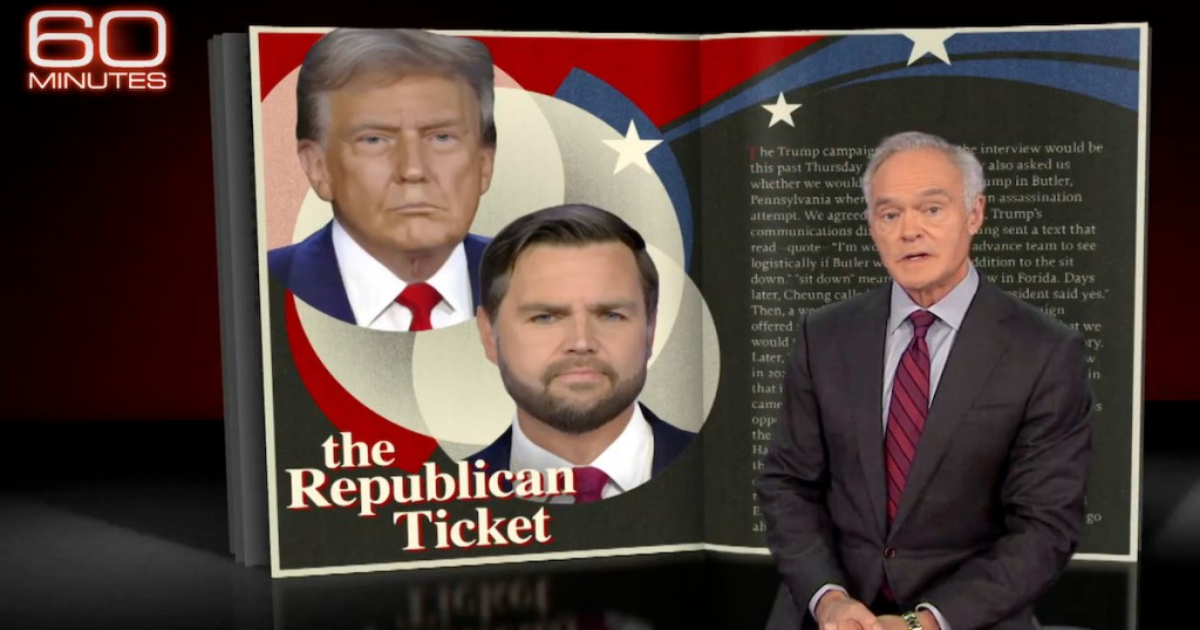In the movie “Family Business,” Sean Connery’s character lays out a strategy for surviving in prison: Pick the biggest guy you can find, knock him out, and after that, nobody will mess with you.
Donald Trump has essentially done just that in his ongoing battle with the press, albeit by targeting a uniquely vulnerable journalistic giant, “60 Minutes.” Setting aside the details, this qualifies as one of those instances where mere appearance perfectly embodies what journalists often refer to as a “chilling effect” — that is, something that dissuades people from exercising their First Amendment rights in advance based on the fear of reprisals.
After suing CBS for billions over a “60 Minutes” story, and railing against recent coverage that the thin-skinned Commander in Chief viewed as negative towards him, Trump achieved his knockout blow with the news that award-winning “60 Minutes” executive producer Bill Owens would resign after nearly 40 years on the program, which he announced in a memo to staff on Tuesday.
First reported by the New York Times, Owens wrote that over the last several months it has “become clear that I would not be allowed to run the show as I have always run it. To make independent decisions based on what was right for ’60 Minutes,’ right for the audience.”
Owens included the reassuring note that the venerable newsmagazine would “do what it has done for 57 years” — and CBS News reiterated its commitment to that mission — but one could be forgiven for greeting that with a degree of skepticism, given his reference to diminished independence. And in that admission, Trump had already won a victory, demonstrating to the press that if his pressure tactics could lead to a change at the granddaddy of TV news programs, what might that mean for anybody at a lesser news outlet perceived as having crossed or wronged him?
As noted, “60 Minutes” found itself in a particularly awkward position, having drawn Trump’s ire at a time when the network’s parent company, Paramount Global, is seeking to ensure no roadblocks get thrown in the way of its pending merger with Skydance Media, amid ongoing regulatory review.
Presidential administrations always enjoy a degree of leverage over corporations, but with billions of dollars hanging in the balance for Paramount chairman Shari Redstone and other investors, rarely can they be viewed in a manner as directly transactional as that.
The reaction to the news was one of disappointment, if not necessarily surprise, across the journalism community. As New York Times columnist Nicholas Kristof put it, “So sad to see the owners of CBS, a news organization whose correspondents have risked their lives covering wars, upheavals and dictators abroad, knuckle under to authoritarianism at home. CBS journalists deserve better from their bosses.”
“Tiffany network no more,” tweeted journalism professor and critic Jeff Jarvis, alluding to CBS’ storied history.
The stewardship of “60 Minutes,” though, is far more significant here because of what it symbolizes than any changes that might practically impact the program.
It’s worth recalling Trump’s initial lawsuit was predicated on the flimsy premise that the newsmagazine had edited a pre-election interview with his rival, Kamala Harris, in order to make her look better, never mind that such editing is viewed as standard TV-news practice, and that Trump had been offered a similar forum he declined to accept.
Given how heavily Trump relies on victimization and grievance, what actually happened was of less importance than fostering the impression a venerable news organization had somehow placed its thumb on the scale for Harris — an argument his supporters have been assiduously programmed to believe.
Nor has the campaign against “60 Minutes” occurred in a vacuum, coming as it has amid threats to independent journalism on multiple fronts, including the administration’s skirmish with the Associated Press for failing to adopt the designation “Gulf of America,” efforts to defund public broadcasting and attempts to make government subscriptions to publications like Politico somehow look like nefarious payoffs.
Yet while Owens is hardly a household name, “60 Minutes” is. And whatever behind-the-scenes concerns and tensions played a role in the producer’s decision to quit, the view from the cheap seats suggests that Trump, in layman’s terms, complained to the manager and got the offending employee removed.
The ripple effects from that remain to be seen, but the take-down-the-biggest-inmate-you-can-find approach represents a highly effective means of sending a message to those who might be thinking about testing your mettle. Because suddenly, the familiar ticking clock that greets “60 Minutes” viewers each week feels like a countdown on what problematic concession Trump will seek to extract from the world of journalism next.
The post With His ’60 Minutes’ Coup, Trump Sends a Not-So-Subtle Message to the Press appeared first on TheWrap.



